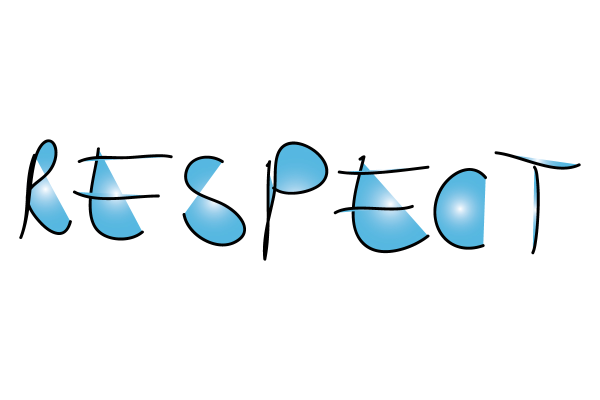by Molly Redenbaugh
To copyedit, or not to copyedit: that is the question.
You’re a pretty good speller, and even if you’re not, you live next door to a retired English  teacher. Thanks to MS Word, you’ve run your final manuscript through spell check no less than fifteen times, so why should you spend the money on copyediting services when those same funds will easily replace that old, worn-out washing machine with a shiny new one filled with all the latest bells and whistles?
teacher. Thanks to MS Word, you’ve run your final manuscript through spell check no less than fifteen times, so why should you spend the money on copyediting services when those same funds will easily replace that old, worn-out washing machine with a shiny new one filled with all the latest bells and whistles?
I get it—I really do. This is exactly why we advise all Author Advocates at Infinity Publishing NOT to sell editorial services by themselves. It’s just too much money to spend without fully comprehending WHY you’re spending it.
Your mom loves your book, as do all your neighbors and friends, but remember, these same people were the ones that cooed over that papier-mâché ash tray you made in fifth grade. If you take any one thing away from this article, please let it be this: once it’s out, there’s no going back. Yep, you’re stuck with it. Sure, you can revise it later on, but by then, the damage has been done and the reviews on your Amazon page may just follow you forever.
When Is Copyediting Necessary?
If you expect your book to be purchased and read by anyone besides family and friends, you should consider copyediting a prerequisite to selling your book. Why? One word—<channel your own Aretha here> R.E.S.P.E.C.T.
- Respect for your time and effort.
- Respect for the reader.
- Respect for the publishing industry as a whole.
Consider the necessary editorial work as Step One of your marketing campaign. Good Quality Product. CHECK! You owe it to yourself and the reader to do all that you can to put the very best product on the market. The last thing you want is to find out embarrassing mistakes after the book has been printed and the marketing campaign is in full force.
Shouldn’t I Know This Stuff?
In its printed form, The Chicago Manual of Style, 16e, has 905 pages (without the Index and Bibliography), including over 20 pages regarding solely the treatment of commas, colons, and semi-colons. In short—No, you are not expected to know all there is to know about the English language. It’s your job to write a great book, and it’s your editor’s job to know the best practices of the elusive semi-colon.
A thank you note to one of our editors recently read:
When I received your overview and read the first two paragraphs, I cried for ten minutes. You have no idea what you did for me. No one in the industry would read my MS. I went to two writer's conferences and was told that no one would want to read my story. This was said without reading a synopsis or pitch. I went to learn about writing and to better my fledgling attempts at the craft. Subject matter aside, I just wanted someone to read my work and judge my writing. YOU did that for me!
This is my first effort. I know I have a long way to go and a lot of improving to do. Everything you added or deleted was spot on. Your comments and suggestions were above and beyond. Your praise made my heart swell to bursting. I gave thirteen months of my life to this endeavor. As hard as it was for you to endure the beginning of my book, I can assure you it was harder to endure the recalling and writing of it. I was despondent at the thought my efforts were in vain. YOU validated my work! For that, I'm eternally grateful.
And the author … is a heart surgeon. So, if a doctor needs an editor, odds are you do too.
How Do I Know What I Need?
Of course we know you’re not an editor, so we’ve worked with Infinity Publishing to develop an editorial evaluation designed to provide you with all you need to make an educated decision regarding the editorial services appropriate to your individual title. All of our evaluators are well-schooled in the art of copyediting, have polished countless manuscripts in their time, and are intimately familiar with the grammar rules set forth in the book publishing industry’s foremost style guide, The Chicago Manual of Style, 16th Edition.
Decision Making
I know … it’s still a lot of money to spend. Don’t think about the full amount just yet. Get the editorial evaluation. It’s not a huge investment and may even come bundled in your package. Look carefully at the sample edit and the comments the evaluator has provided. Unfortunately, copyediting takes time, hence the high cost. The average editor edits at a rate of 1750 words per hour with the average manuscript coming in at just over 70,000 words. So, yes, it is a lot of money, but it is worth the approximately 40 hours put in to prepare your book for your perceptive readers.
Editorial Soapbox
Marketing services are definitely important, and Infinity has developed wonderful programs designed to help you market your book effectively, but before designing a gung-ho marketing plan, make sure the product itself is worthy of all that you’ve invested in it.
---
Molly Redenbaugh manages the editioral services team that edits Infinity Publishing titles.
Image courtesy of Cécile Graat.




